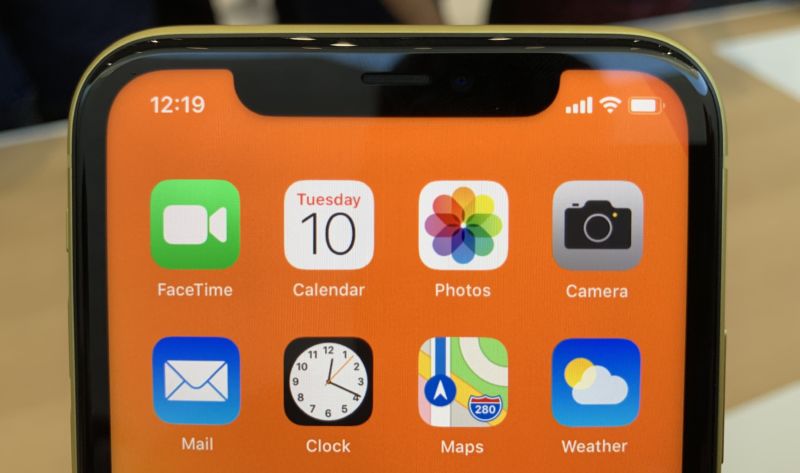

reader comments
68 with 44 posters participating
CUPERTINO, Calif.—Apple’s annual major public releases of iOS, iPadOS, and watchOS will arrive by the end of this month, Apple revealed on its website as it unveiled new hardware products in a live-streamed event today.
iOS 13 will hit iPhones and watchOS 6 will reach Apple Watches on September 19. iPadOS will ship a few days later on September 30. macOS Catalina is still due at an as-yet-unspecified date in October.
Since Apple already made its announcement detailing features of the new operating systems at its developer conference back in June, today’s event was focused on new hardware like the iPhone. But Apple often launches its major operating system releases alongside new hardware—especially when they involve mobile devices.
iOS 13 adds Dark Mode to the iPhone, iPad, and iPod touch. It can be toggled on and off from within the Control Center. The update also adds a plethora of new photo and video features, including more robust editing capabilities. iOS 13 also adds a more natural-sounding voice for Siri, a number of updated Maps features, and a total overhaul of the oft-criticized Reminders app. But perhaps the most significant change in iOS 13 is the introduction of iPadOS, a new, tablet-specific version of the operating system that offers improved multitasking capabilities and other features for power users—all intended to make the iPad more viable as a laptop replacement.
At the heart of Apple’s pitch for macOS Catalina is a developer-focused feature called Catalyst. Catalyst allows app developers to relatively easily port iPad apps to the Mac. Among other things, the goal is to bring an abundance of single- or focused-use apps to the Mac App Store, which has not gained as much traction as Apple’s App Store for mobile devices. Catalina also splits iTunes into multiple applications with more specialized functions: Music, TV, and Podcasts. Users will see new ways for their Macs to interact with the iPad and Apple Pencil, as well as a number of minor improvements to various apps.
Less on the positive side for some users, Catalina will deprecate support for 32-bit applications, making many old games and other apps unplayable after the OS is installed.
As far as watchOS 6 goes, users will get menstrual-cycle tracking features, a new feature that allows tracking fitness performance over time, and an on-Watch App Store so users can download Watch apps without browsing on their iPhones—along with support for new features in the Apple Watch series 5.


